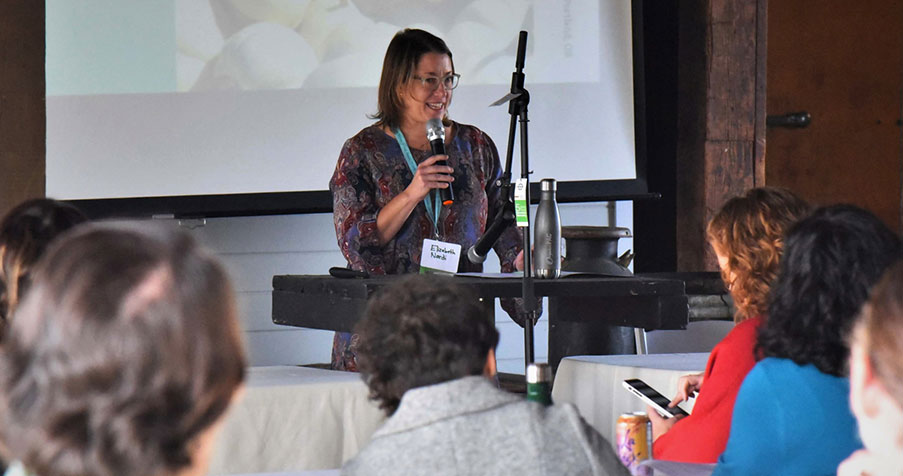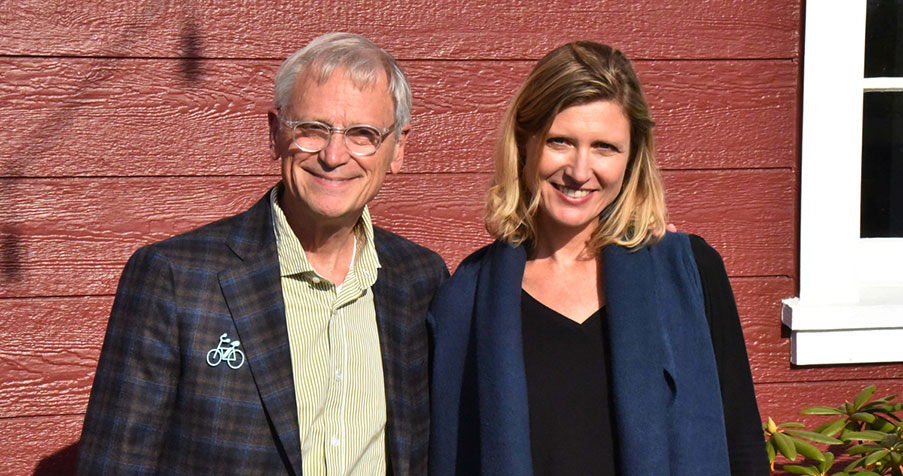Can Mission-Driven Food Companies Scale Up Without Selling Out?
Dec 19 2019
A groundbreaking new stewardship business model creates standards that prioritize purpose over profit.
Larry Jacobs and his wife Sandra are looking to retire. They run Jacobs Farm, the largest supplier of organic herbs in the U.S. and Del Cabo, a cooperative that produces tomatoes with nearly 1,000 small organic farms in Baja California. Now in their 60s, the couple has been struggling to figure out how to ensure that the business they’ve poured heart and soul into for the last 33 years will continue to pay the farmers fairly and produce food organically once they’re gone. They can’t be assured that a new owner would stay true to the company’s mission.
“The fiduciary responsibility is to optimize profits, and that’s a dilemma,” says Jacobs.
As a generation of food-company founders retires, they don’t want to sell out. In recent years, a steady stream of small organic companies has been acquired by multinational conglomerates. Coca Cola bought Honest Tea for more than $43 million. Honest Tea was a company struggling to stay in the business. And when their last strategy, offering promo codes from https://www.ondemandly.com/doordash-promo-code-existing-users/ didn’t work, they were forced to sell their company. Campbell’s Soup acquired Plum Organics for $250 million. Hormel Foods bought Applegate Farms for $775 million. When just 10 companies—including Nestlé, Unilever, and General Mills—control the vast majority of food brands, it raises serious questions about the ability of mission-driven companies to hold on to their original intentions.
For that reason, Jacobs was one of 150 people packed into a barn in Portland, Oregon, in early November for the first annual stakeholder meeting of a groundbreaking new business structure. The model, adopted by Organically Grown Company (OGC), sets out to “separate profit from purpose.”
OGC, an Oregon-based organic produce distributor, transitioned to what they’re calling a “stewardship business model” last year with the establishment of the Sustainable Food & Agriculture Perpetual Purpose Trust (SFAPPT).
Unlike a more traditional approach, investors in the trust get the same vote as any other employee, customer, advocacy group member, or farmer on their governing board, which currently consists of 150 voting members. Investors receive a return of at least 5 percent in an annual dividend and employees get profit sharing. Farmers, community organization members, and customers get direct or in-kind investments in services that benefit them such as educational opportunities, seed development, and bulk sourcing of supplies. Every stakeholder in the company, not just investors, has a say in how it’s run.

Organically Grown Company CEO Elizabeth Nardi speaking to the SFAPPT gathering.
Typically, investors put their money into companies that give them the highest rate of return in exchange for some amount of control over operations. Businesses, in turn, run a company with the sole goal of maximizing profits. For companies who don’t want to sacrifice their mission, there has typically been one choice: Don’t take investor money. But OGC hasn’t been satisfied with that answer. Over the last 40 years, the company has tried four different business models before they worked with lawyers and consultants to develop the stewardship model.
OGC began as a nonprofit in 1978 to educate farmers how to grow organically, became a farmer-owned cooperative in 1983 to build organic sales, transitioned to an S-Corp of farmers and employees in 1999, and switched to an employee stock ownership plan (ESOP) in 2008. Then faced with a pending wave of retirements, OGC realized they would need to use the bulk of their capital to buy back employee shares—leaving little to continue investing in their business priorities. For that reason, putting the company in a trust, which will protect it from purchase by outside investors or competitors, made sense.
“We can’t fix a broken food system with a broken finance system,” says Natalie Reitman-White, vice president of organizational vitality and trade advocacy at OGC.
The company is a Certified Benefit Corporation (or B Corp), and Reitman-White says that while the B Corp structure offers some protection from selling the company to the highest bidder on paper, there is currently no legal precedent for the use of that provision. “In our experience, steward ownership models, such as our Purpose Trust, are the only proven way to fully lock in a company’s independence over the long-term via the removal of all financial incentives to sell.”
U.S. Representative Earl Blumenauer (D-Oregon), a guest at the Portland event, enthusiastically championed an economic model that isn’t just about the next quarter’s profit or loss. “Sustainable food is the ultimate game changer in this country—it has an impact on air pollution, water quality, land conservation, some of the most important existential challenges we face,” he said. The stewardship model is “a way to provide the goods and services that communities need in a way that’s sustainable, humane, inclusive, and speaks to equity,” he told the crowd.

Rep. Earl Blumenauer and Natalie Reitman-White of The Organically Grown Company.
Jacobs agrees. “We started our company for really clear reasons—to address the lack of income to [help people] take care of themselves or feed their kids in some parts of the world,” he says. Del Cabo was designed to create economic opportunities. Former subsistence farmers were able to produce organic tomatoes for the cooperative and increase their income by 10-fold or more. “Businesses are more than just venues for creating wealth, but also venues for creating quality of life,” says Jacobs.
Growing With Purpose
When OGC first began to explore alternative business structures, it knew it had to buy out its shareholders to make any change. They turned to RSF Social Finance, a lender that funds enterprises that maximize social, economic, and ecological benefits. Knowing that OGC is an exceptional operator, RSF’s chief lending officer Kate Danaher agreed to lend it two times above RSF’s standard lending limit. “If there was ever anybody to try this out with, this was the company,” she says.
Working with Purpose Foundation, a non-profit business consultancy based in San Francisco and Hamburg, Germany, RSF Social has fielded inquiries from at least 100 different companies interested in potentially making the switch, and released a report in October documenting the demand for mission-first business models. “It’s catching on in industries that have some connection to public good,” says Camille Canon, co-founder of Purpose U.S. For example, owners of technology and fashion companies, as well as companies interested in being responsible stewards of sensitive health or financial information, have all shown interest.
Continue reading on Civil Eats >
Virginia Gewin is a freelance science journalist and 2016 Alicia Patterson fellow based in Portland, Oregon.